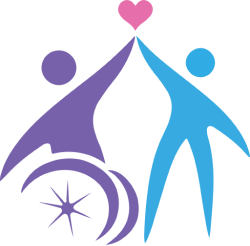UnityPoint Health - Meriter's unique driver's readiness evaluation process includes a functional comprehensive occupational therapy evaluation to identify strengths and difficulties related to driving. Our highly trained therapists assess specific physical, visual, and cognitive abilities, including adequate reaction speed, visual perception and processing, spatial skills, memory and attention. The results are given to your referring physician to assist in the final decision about your ability to drive
The Emergency Preparedness Workbook for People with Disabilities will guide you through the process of gathering the information and supplies you will need if a disaster strikes. It is filled with worksheets, checklists, and tips to help you prepare for an emergency.
ERI advances employment, health, and financial security for people with disabilities. We do this by supporting people with disabilities in achieving employment goals, receiving benefits counseling, accessing healthcare, and connecting to financial information and resources.
ERI also offers training and technical assistance to professionals, community partners, and the public regarding disability and employment issues.
ERI’s Pre-Driving Assessment provides people with disabilities feedback about their abilities related to driving. This hands-on experience builds confidence and provides valuable information about moving forward with driving training.
53716
People sometimes assume that people with communication-related disabilities don't want to communicate or can't communicate. This assumption can prevent people from getting the supports they need. But everybody communicates - whether using language, behavior, gestures, facial expressions, sounds, or other means.
This toolkit, created by the Autistic Self Advocacy Network, is designed to help you access communication evaluations and tools for effective communication for people with communication-related developmental disabilities. These may include autism, apraxia, cerebral palsy, and other developmental disabilities that affect communication.
People sometimes assume that people with communication-related disabilities don't want to communicate or can't communicate. This assumption can prevent people from getting the supports they need. But everybody communicates - whether using language, behavior, gestures, facial expressions, sounds, or other means.
This toolkit, created by the Autistic Self Advocacy Network, is designed to help you access communication evaluations and tools for effective communication for people with communication-related developmental disabilities. These may include autism, apraxia, cerebral palsy, and other developmental disabilities that affect communication.
